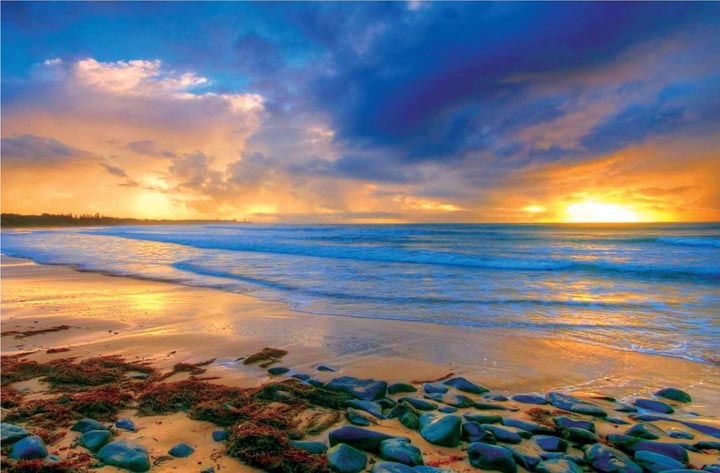




Salt water is water that contains about 3.5% salt. It is found in the world's oceans and seas and in a few lakes. Salt water content can differ quite a bit within the same body of water. It is less salty where fresh water runoff mixes into the ocean or sea — usually from a river or melting glacier. On the other hand, some water is much saltier. Take the Red Sea, for example, which has a high rate of evaporation and not much fresh water runoff.
Small amounts of salt water won't hurt someone, but relying on it for hydration is a deadly mistake. Salt water is too salty for the kidneys to handle, and the body will shut down. It is, however, possible to remove salt from salt water to make it drinkable. Some boats are equipped to do this, making it possible to survive without taking bottled water on trips. Although humans cannot survive on salt water, many creatures in the oceans rely on salt water for their existence. The Earth is 70% covered by salt water, so it is the largest ecosystem. It is estimated that 50% of all creatures on Earth are supported by salt water ecosystems.

Salt water provides almost half the planet's oxygen. The oceans are almost as important as the forests in this regard. Places where fresh water and salt water meet are called brackish water. It is possible to find both fresh water and salt water species in these waters sometimes.
Word List
runoff : fresh water entering the ocean
hydration : getting enough water into one's body
You Practice
I. Answer the following questions.
1) Why is salt water important for our planet?
2) Why is too much salt water not good for us?
3) What is brackish water?
4) What two sources do most of the Earth's oxygen come from?
5) What is the closest body of salt water to where you live?
II. Word power—Use these words from the reading in sentences of your own.
1) brackish______________________________________________
2) ecosystem____________________________________________
3) runoff________________________________________________
4) drinkable _____________________________________________
5) equipped _____________________________________________
III. True / False / Not Given—Write T if the sentence is true, F if the sentence is not true, or NG if there is no information about the sentence.
____ 1) Salt water is bad for all species of animals.
____ 2) Most of Earth is covered by fresh water.
____ 3) Salt water cannot be converted into fresh water.
____ 4) The salt content in a body of water is the same in all areas.
____ 5) Even a little salt water is deadly to humans.